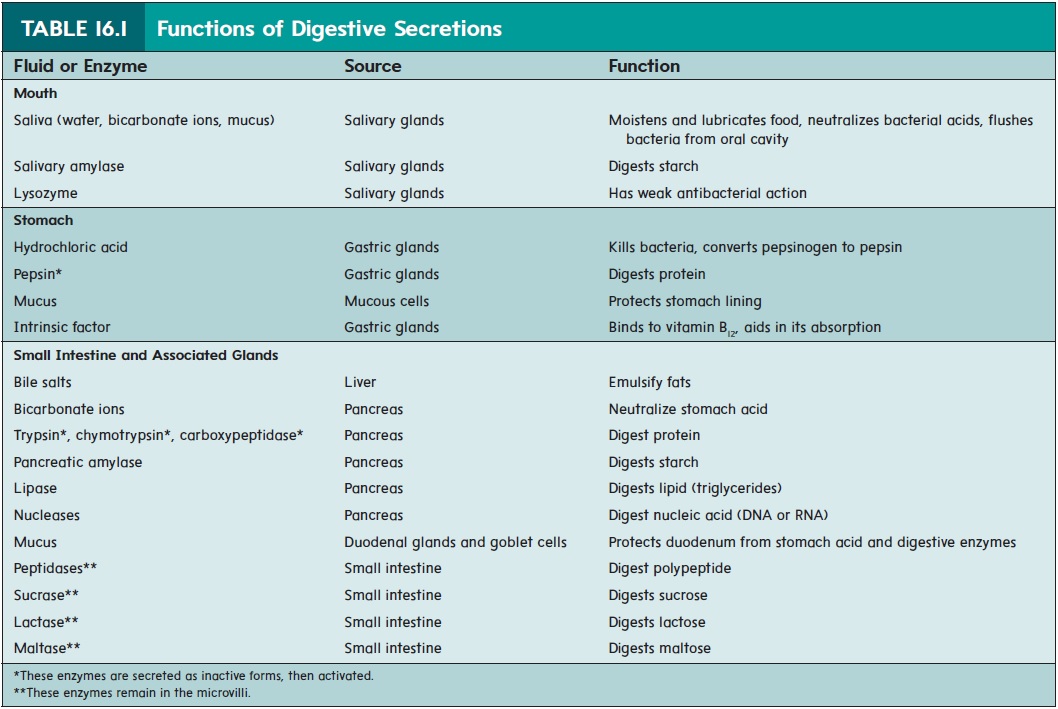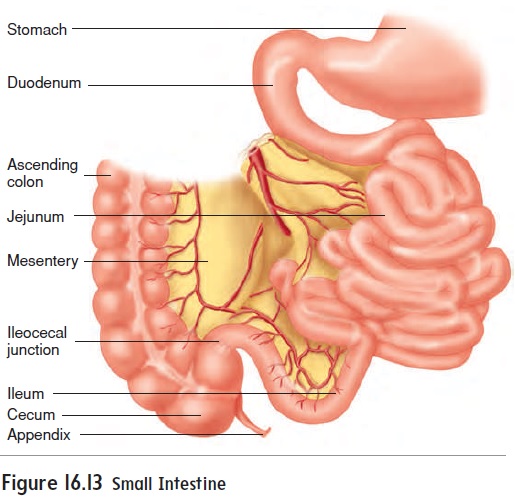Chapter: Essentials of Anatomy and Physiology: Digestive System
Secretions of the Small intestine
Secretions of the Small intestine
Secretions from the mucosa of the small intestine contain mainly mucus, ions, and water. Intestinal secretions lubricate and protect the intestinal wall from the acidic chyme and the action of diges-tive enzymes. They also keep the chyme in the small intestine in a liquid form to facilitate the digestive process. Most of the secretions entering the small intestine are produced by the intestinal mucosa, but the secretions of the liver and the pancreas also enter the small intestine and play important roles in digestion.
The epithelial cells in the walls of the small intestine have enzymes, bound to their free surfaces, that are significant in the final steps of digestion. Peptidases (pep′ ti-dās-ez) break the peptide bondsin proteins to form amino acids. Disaccharidases (dı̄-sak′ ă-rid-ās-ez) break down disaccharides, such as maltose, into monosaccharides, such as glucose. The amino acids and monosaccharides can be absorbed by the intestinal epithelium (see table 16.1).

Mucus is produced by duodenal glands and by goblet cells, which are dispersed throughout the epithelial lining of the entire small intestine and within intestinal glands. Hormones released from the intestinal mucosa stimulate liver and pancreatic secretions. Secretion by duodenal glands is stimulated by the vagus nerve, secre-tin release, and chemical or tactile irritation of the duodenal mucosa.

Related Topics